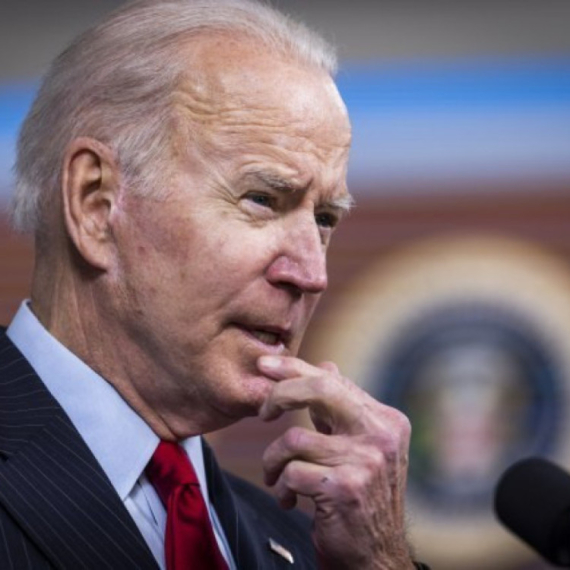C. bank chief on impact of global public debt crisis
NBS Governor Dejan Šoškić says the public debt crisis currently taking place in some countries presented Serbia with "two major challenges".
Thursday, 11.08.2011.
19:34

NBS Governor Dejan Soskic says the public debt crisis currently taking place in some countries presented Serbia with "two major challenges". Those are the potential growth of the country risk premium and the pressure on the weakening of the domestic currency, and possibly lower exports to countries that had problems. C. bank chief on impact of global public debt crisis “We are carefully monitoring the situation as it unfolds in international financial markets and we know what the main channels of the potential impact on Serbia are,” Soskic told Tanjug. “Serbia will not be able to avoid the impact of a possible new wave of world crisis. If it occurs in other countries, it will come here as well, it is indisputable, but it is important to bear in mind that the effects of this influence are largely predictable, that we can assess what they may be and what can happen, so that we have time enough to adopt appropriate measures,” the National Bank of Serbia (NBS) governor said. Soskic said that the current developments in international financial markets would certainly be reflected in Serbia's economic activity to some extent, but added he did not expect serious challenges in terms of stability of the financial system. Soskic said it was very important for Serbia to be in a state of heightened vigilance in terms of public spending, because “when a debt crisis is present, it is necessary we showed that we are a country that takes the issue of public finances very seriously, in accordance with the budget system law, especially in the part related to fiscal responsibility.” “It means not to cross the set out deficit targets and the level of public debt in relation to the gross domestic product, which is defined by law to be at 45 percent, and to show that we are able to respond to the obligations placed on us in the context of our negotiations with the IMF about possible new arrangements,” the NBS governor said. Dejan Soskic (Tanjug)
C. bank chief on impact of global public debt crisis
“We are carefully monitoring the situation as it unfolds in international financial markets and we know what the main channels of the potential impact on Serbia are,” Šoškić told Tanjug.“Serbia will not be able to avoid the impact of a possible new wave of world crisis. If it occurs in other countries, it will come here as well, it is indisputable, but it is important to bear in mind that the effects of this influence are largely predictable, that we can assess what they may be and what can happen, so that we have time enough to adopt appropriate measures,” the National Bank of Serbia (NBS) governor said.
Šoškić said that the current developments in international financial markets would certainly be reflected in Serbia's economic activity to some extent, but added he did not expect serious challenges in terms of stability of the financial system.
Šoškić said it was very important for Serbia to be in a state of heightened vigilance in terms of public spending, because “when a debt crisis is present, it is necessary we showed that we are a country that takes the issue of public finances very seriously, in accordance with the budget system law, especially in the part related to fiscal responsibility.”
“It means not to cross the set out deficit targets and the level of public debt in relation to the gross domestic product, which is defined by law to be at 45 percent, and to show that we are able to respond to the obligations placed on us in the context of our negotiations with the IMF about possible new arrangements,” the NBS governor said.










































Komentari 0